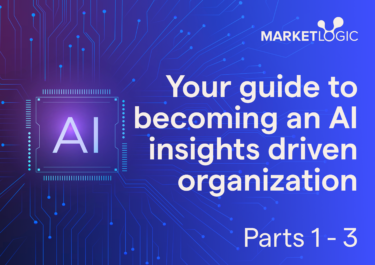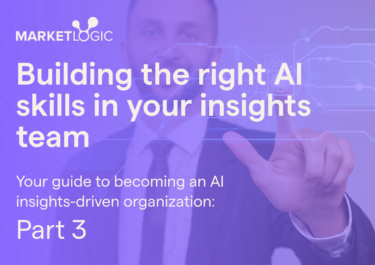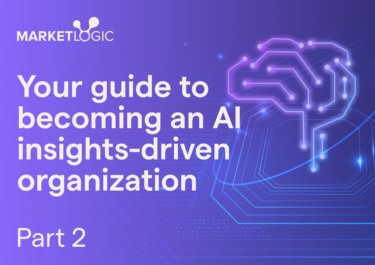
October 28, 2020
Read time: 5min

October 28, 2020
Read time: 5min
If the COVID pandemic has taught us anything about decision making in organizations, it’s that the need for insights has never been greater. This new reality in consumer behavior, coupled with a tremendous amount of uncertainty in businesses and across markets, has solidified insights managers’ roles at the heart of the world’s biggest experiment in behavior change.
Insights professionals spend a lot of time informing and educating the business to help them better understand their customers, their products, their new markets – sharing tailored research, stories and the latest news with different target groups in the organization.
But an insights department can’t answer every business user’s question. The ratio of insights experts to business managers can range from 1:10 at best, in companies that offer a house of brands, to 1:1,000 or more in corporations that offer a product portfolio under one brand.
How can these experts expand their reach? The answer is clear: give business users something in their own hands through self-service access to insights. Self-service market insights platforms address key challenges businesses are facing:
A powerful self-service insights platform provides better, more grounded and consistent advice across teams when experts can’t be there to guide the way. Now business users can gut check their own opinion with an insights platform in real-time, using minimal resources.
Modern insights platforms are based on three pillars:
Some of the most powerful game-changers for insights platforms today include updated smart search capabilities and fully integrated user interfaces. Users can now customize search results and the depth of information displayed by user type, so they only see what’s most relevant to them.
Interfaces have also evolved, becoming fully integrated with collaboration platforms such as MS Teams, so that business users can effortlessly interact with content via a bot. This brings insights to the user, exactly when they need them.
In addition, smart assistants are becoming even more powerful and relevant. Soon, every business user and insights professional will have a smart digital co-worker in their pocket, kind of like a super researcher on their smartphone.
Users will be able to ask it any question, and if the digital co-worker doesn’t know the answer, it will know which expert to contact, to start a dialogue. Since easier questions will be answered by the digital co-worker, always on and always ready to serve, insights professionals will be able to focus on more complex topics and discussions, becoming ever-more trusted business advisers, instead of spending time as data keepers.
Cutting-edge technologies like AI, DIY research platforms, digital assistants, and digital workplaces for insights managers help better consolidate information and scale insights usage within an organization.
But besides all these great new technologies, we will also continue to need people to answer more complex questions like “how can I increase revenue by 10%?” Human curation becomes the GPS guidance for navigating change, while AI-powered insights platforms find the needles in the haystacks of our overloaded information landscape.
To truly help a business better understand their customers, products and markets, putting self-service capabilities into business users’ hands to expand the reach of insights professionals is critical. While market insights platforms do the technical heavy lifting, thoughtful human curation is still key to helping organizations navigate uncharted waters.

How is AI transforming roles, skills and capabilities in insights functions?

Interview with Nextatlas CEO Luca Morena

An introduction to gen AI for businesses. From RAG to LLMs — get the lowdown.

Exploring the Future of AI in Marketing: Integrating Insights into Business Systems for Enhanced Decision-Making.

To succeed in today's dynamic consumer landscape, your organization must be able to react faster…

How does this guide help you? In part 3 of our guide, we’ll delve into…

Learn the AI insights-powered enterprise systems architecture and processes.

Transform your organization with insights. Download this guide to find out how.